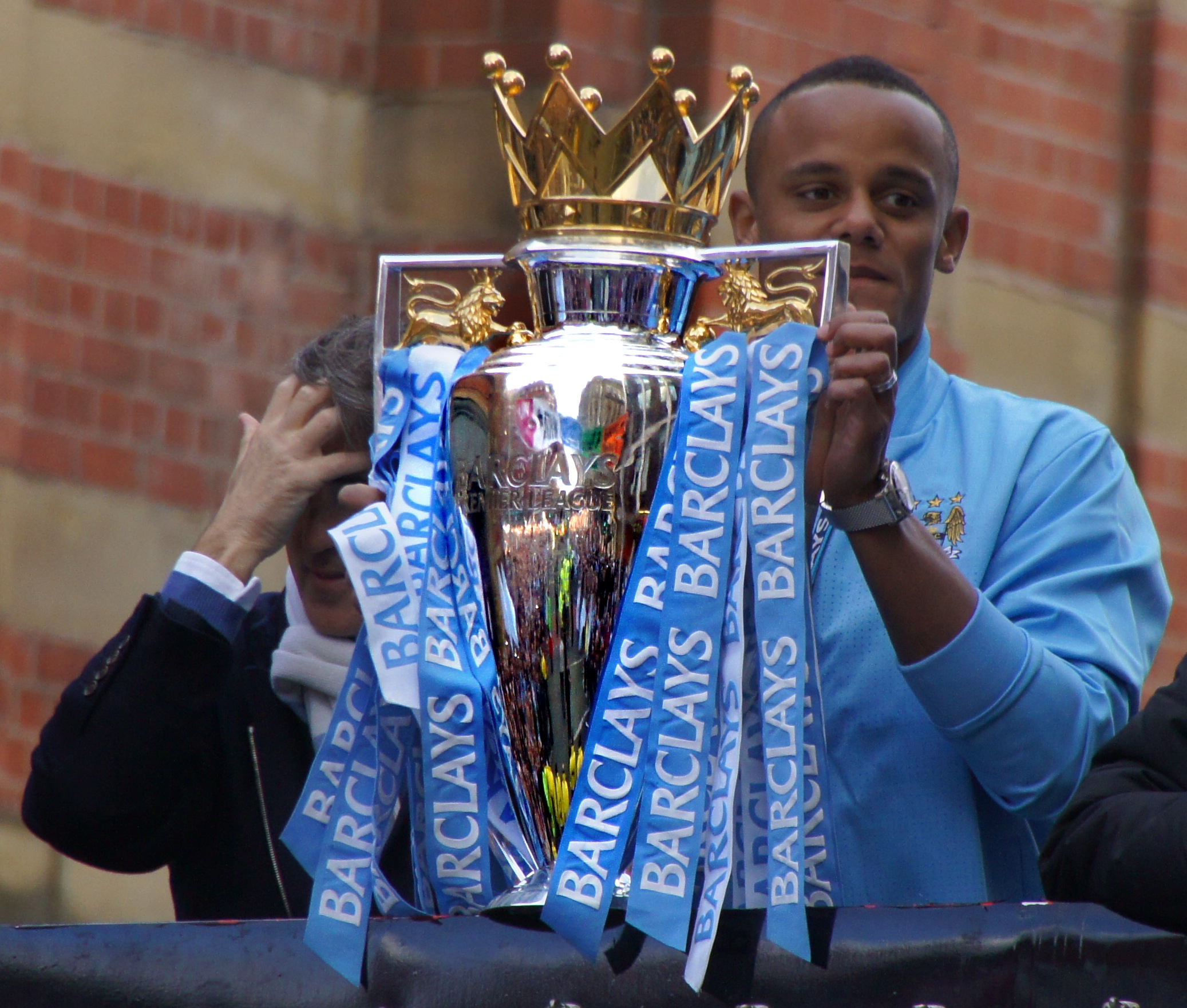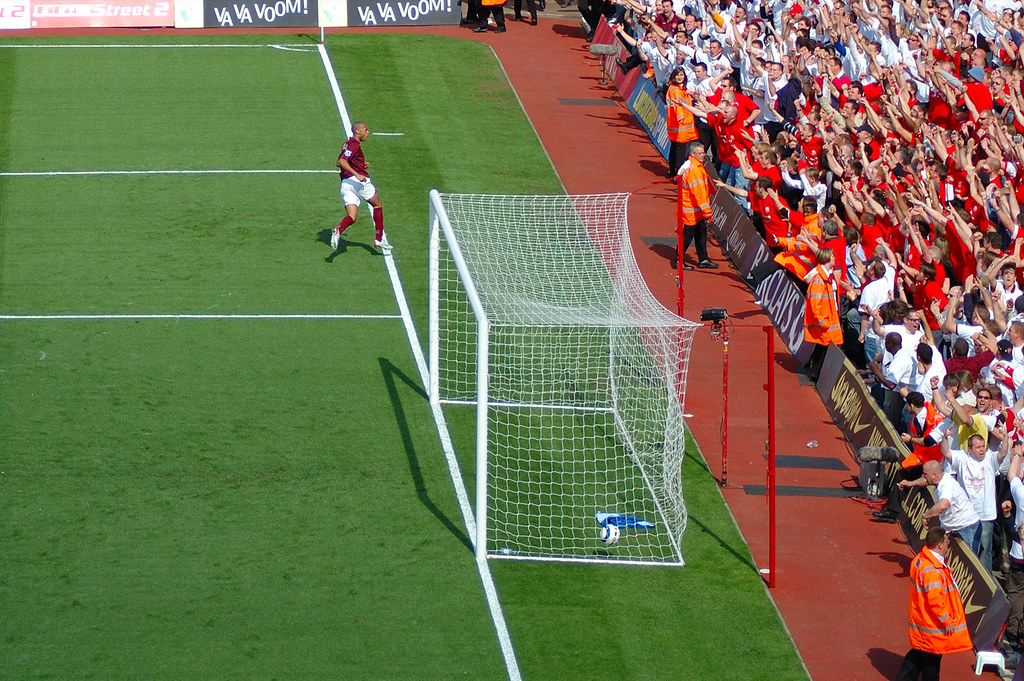For a while now, the
Premier League’s pantomime status has been secured not only by players, but by
managers as well. TV coverage increased and post-match interviews gave rise to
the manager’s media voice, and what we were left with was another dimension of
football celebrity.
And by such measures the Premier League is in rude health, with
premium managers occupying various car-sponsored leather seats in dugouts across
the country. Arsene Wenger has his ‘Invincibles’, Jose Mourinho has tasted
success everywhere he’s been, Manuel Pellegrini showed his credentials with an
immediate league title, and Louis van Gaal went unbeaten with Ajax in both the
Eredivisie and the Champions League in a remarkable 1994/95 season.
 |
| Van Gaal, of Ajax fame. |
The addition of Jurgen Klopp, one of the most sought after
young innovators in football management, has only gone further to suggest that
the Premier League is moving into a dominant position in the managerial
transfer market. Moreover, two of the biggest and best are rumoured to be considering
moves to the self-proclaimed ‘Best League In The World.’
Pep Guardiola is one. The highly intelligent former Barca
no.4 is coming to the end of his contract with Bayern, and with a penchant for
restlessness and a desire to learn about the various cultures of the world, Pep
is closer than ever to moving to England. If he were to take a year out, as he
did after quitting Catalonia, his return would synchronise with Wenger’s
current contract expiring. Equally however, Manchester City are strongly linked.
Carlo Ancelotti is the other. The Italian, who is one of
only two managers to have won the European Cup on three separate occasions (Bob
Paisley for those wondering) has indicated a preference for the PL upon his
next managerial adventure. Carlo is unlikely to arrive just yet, but would
represent a prime opportunity for any top club.
So why is the Premier League such hot property?
Obviously there’s the money. Did you know that in 2013/14,
relegated Cardiff of the Premier League earned more in TV money than Bundesliga
champions Bayern Munich? And I’m talking SIGNIFICANTLY more; many millions.
Equally La Liga has its own problems where TV money is concerned.
Until very recently it was left to individual teams to sort their own TV deals
out, and unsurprisingly Barcelona and Real Madrid took a vast chunk of it.
Reports suggest that while these two earned over £100m from such deals in
2013/14, the next best paid were Valencia (around £35 million) Atletico Madrid
(closer to £30 million) and Sevilla (around £23 million).
 |
| You know the league's rich when the golden lions wear crowns |
These figures make it easy to see why managerial attraction
to the Premier League is strong, but the money serves to make the Premier League
more than just a bank. Despite seeming almost clichéd, the Premier League is an
upwardly mobile place to be with the TV money gap relatively small between the
top and bottom clubs, which in turn leads to greater competition.
While Spain and Germany are famed for relatively dull league narratives, the Premier League is heavily laden with spectacle, with the
current league table a perfect example: Leicester, 11 games in, occupy third
place while Liverpool sit in tenth and Chelsea sixteenth. West Ham, under the
watchful eye of Slaven Bilic, sit in sixth place and look well at home.
And perhaps above all else, the pantomime of the Premier
League is enticing. You can think of Scudamore’s empire as a Hollywood film; it
is fast, action packed, and with not a little controversy and conflict. The
tactical innovation and talent might be greater in Germany or Spain, but if
it’s worthy cinema you want you can jog on to Cannes.
So what does this mean for English football?
First and foremost, high profile management attracts high
profile players, something that is no doubt exciting Liverpool’s following with
Klopp’s Dortmund links. Pep immediately took Thiago Alcantara with him to
Bayern for example, and van Gaal delighted Manchester United fans with the transfer
of Memphis Depay. Wenger has long used his status to attract talents such as
Alexis Sanchez and Mesut Ozil, and there is no doubt that the established
figures of Ancelotti and Guardiola have pull in the market.
There would also be hope that these two could bring some
tactical innovation to the party. While it is all we can do to revel in the
chaos of the Premier League, the country’s best clubs are shadows of their
former European selves. Pep and Carlo are two of Europe’s most successful
tinkerers, and could represent a renaissance of tactical thought in England.
Furthermore, with a gaggle of impressionable young up-and-comers such as Ronald
Koeman, Roberto Martinez and Garry Monk, such presence could have a great
impact on other managers in the league.
| What once seemed like a household item in Premier League trophy cabinets now seems out of reach for PL clubs. |
Further to this, the FA would do well to learn from these
two should they hop aboard the ferry to Dover. With the combined knowledge of a
great pool of managers they might actually be able to enhance England’s
prospects in future tournaments, and if the FA played their cards right, even
attract someone like Pep or Carlo to the national team job one day.
So is it all sweetness and roses? Not quite. Clubs looking
further afield for high-profile managers are destroying the chances of those
plying their trade lower in the league or even further down the divisions. It
is, for example, very difficult to imagine that despite his success at Swansea,
a club like Manchester City would ever offer Garry Monk a chance. That’s just
the way football has gone though, with the same argument having long been made
in defence of the lower-league player.
This league is a product, and there’s no point in kidding
ourselves otherwise. Amidst the fun of the Premier League fair, the managerial
carousel goes round, and it’s as much as we can do to buy some candy floss and
enjoy the bright lights.

.jpg)



